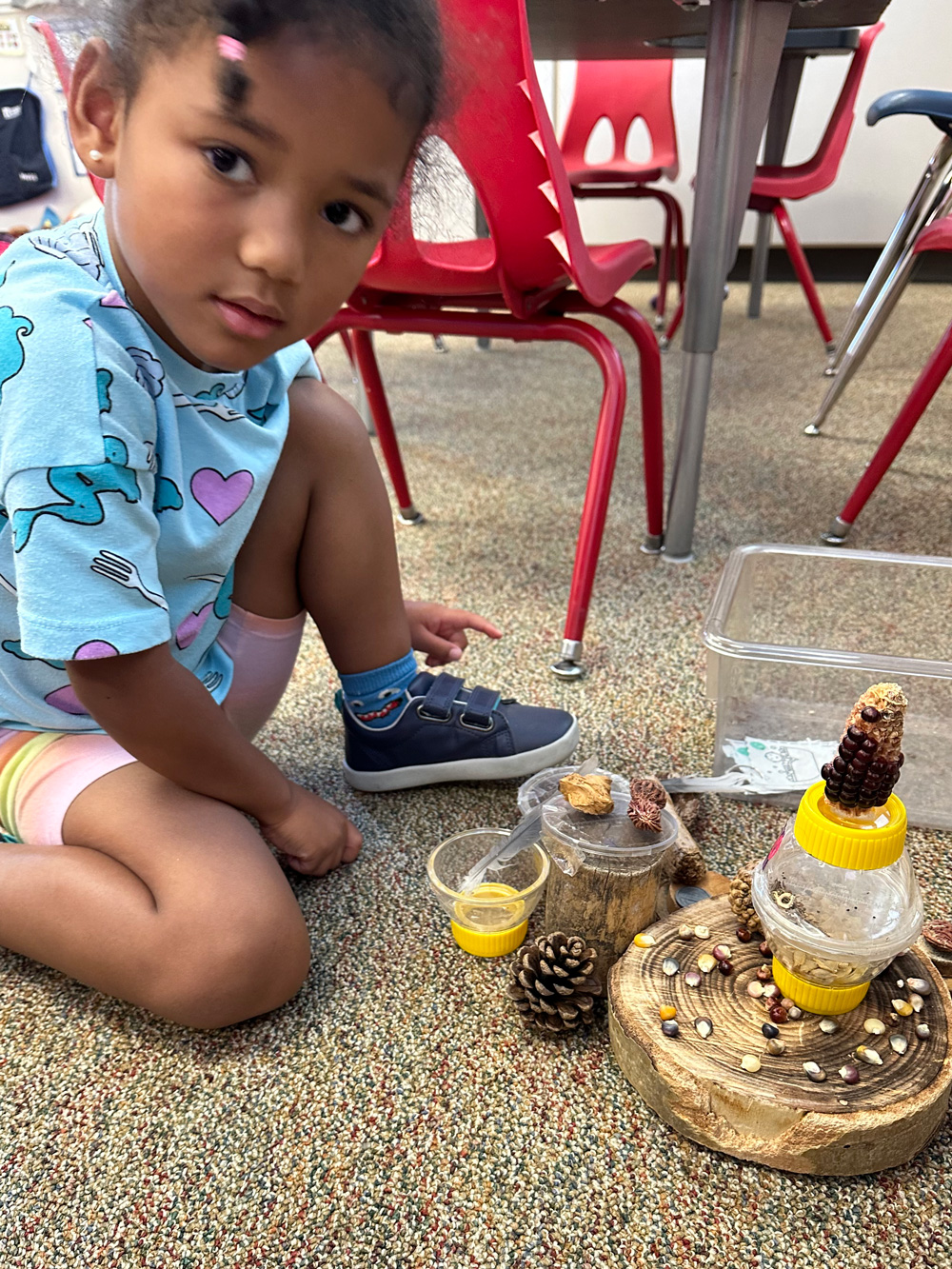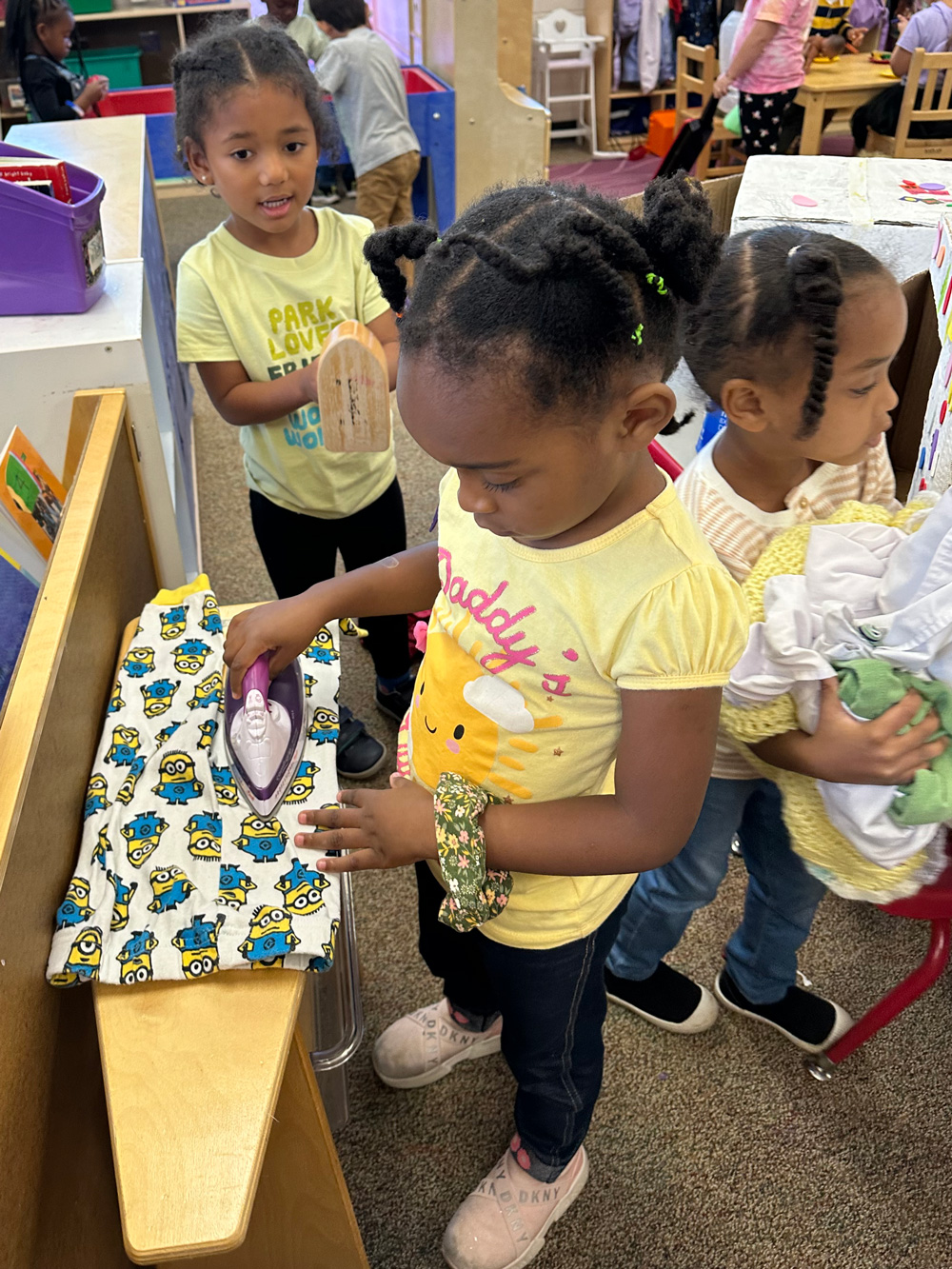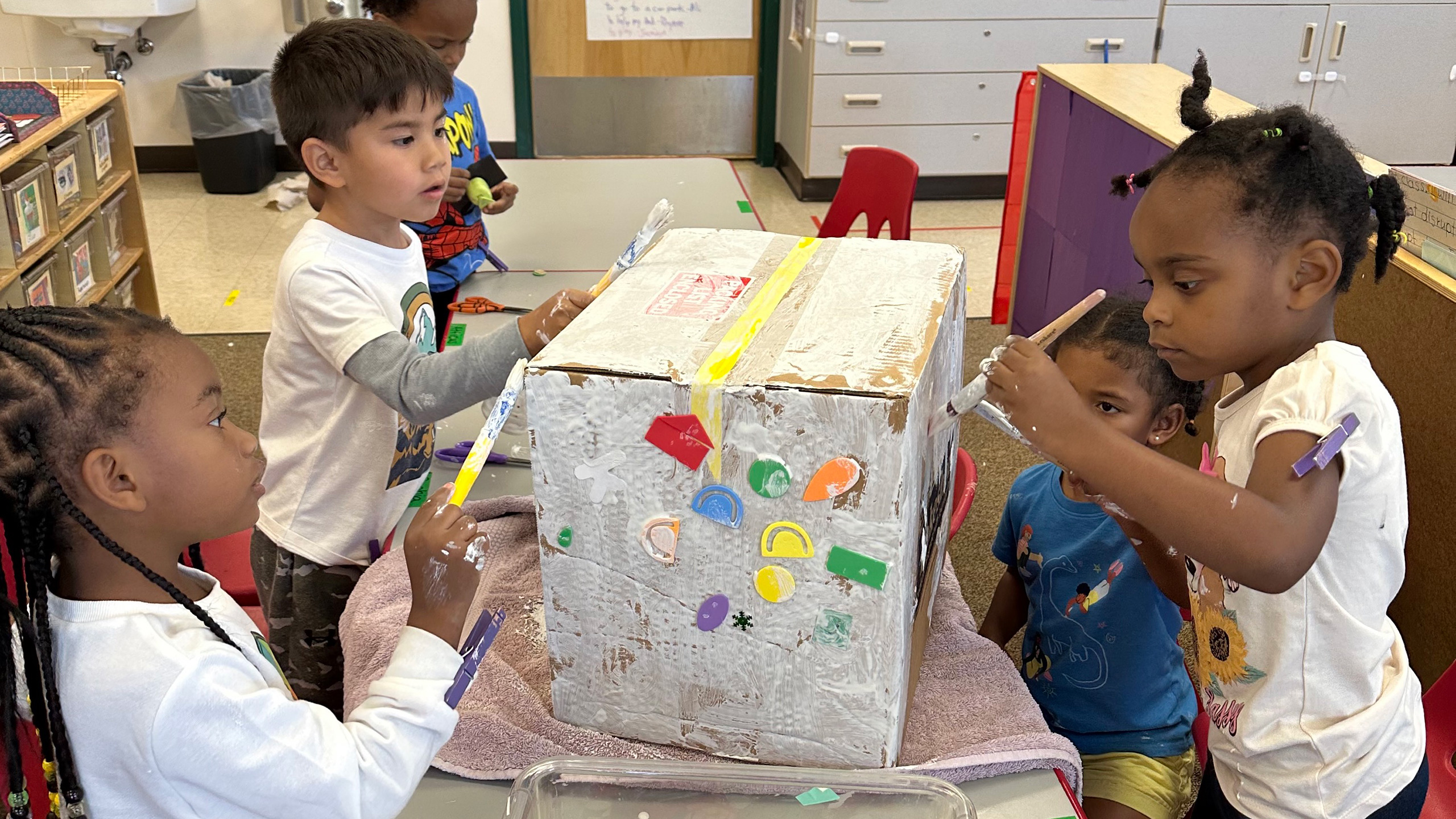After learning about the Tools of the Mind curriculum from cofounder Deborah Leong (read our interview), writer Mark Swartz met one of its practitioners, Grace Wingard. She is one of two teachers for four-year-olds at Lowry Elementary in Denver, Colo. We Zoomed after class, with our conversation periodically joined by her own four- and six-year-old children.
Mark Swartz: Can you tell me about your school?
Grace Wingard: Lowry Elementary is a really special place because we have true diversity here. We’re a neighborhood school plopped down right in the middle of an affluent neighborhood. Some of that population comes here, but we also have Homeless Coalition housing within our boundary.
Swartz: Does that mix present challenges?

Wingard: We work hard to let all our students know that they’re going to get love and consistency, and feel like this is a really safe place where they can be themselves and thrive. They’re just peers, and they all have access to the same things and get to be friends. We know their worlds outside might be very, very different.
Swartz: What was your introduction to Tools of the Mind like?
Wingard: I had already taught kindergarten for five years, and I’ve always just had a passion for literacy. But when I was first trained in Tools of the Mind, it was like, ‘Oh gosh, how am I going to fit all of these things into my school day?’ But now that I’ve had a few years under my belt, I see that when play is at the heart, then everything is connected.
Swartz: Play drives the learning for children this age.
Wingard: Exactly, all the kids are motivated to tell you about what they want to play about, and you just add the piece of like, okay, now draw and write about it and follow through. And they love it.
Swartz: Does what children learn in play translate to how they interact with each other in other Tools of the Mind activities?
Wingard: Buddy Reading starts with an oral language component where we share the news every morning. They’ll turn and talk to their partner, and I change off the partners regularly so they have an opportunity to talk to different students. And then of course, in make-believe play—they don’t really know this—I also will pair the ones we call high-level players and low-level players.
Swartz: How do you determine which is which?
Wingard: We ask, ‘Are they going into a role and staying in the role and doing the things that that person would do? Or are they just going into the center and picking up the cup and pretending to drink it and then bang it on the table?’ Stuff like that. We hope the high-level players will model their behavior. Tools of the Mind is a great complement for other classroom management practices I use in the classroom. When students have big feelings, I’m also coaching them using other self-regulation practices.
Swartz: Can you give me some play examples?

Wingard: Our centers are dramatic play, science center, literacy center, block center, and math and games, which Tools of the Mind calls table toys. Right now, dramatic play is the kitchen. Yesterday I had a little student who was all dressed up in the dress-up clothes. He had this big fancy hat on. He had this sequin skirt on, a purse full of food over his shoulder. I said, “Oh, you look like you’re getting ready to go somewhere. What are you up to?” And he announced, “I’m going out on the town.” Meanwhile, there were two little girls who were cooking the food for the baby and feeding her. And then behind them, we had the water table, with three students—big sensory seekers—using funnels to make the waterwheel turn. And then there was a little girl who had a calculator that she’d found in the math toolbox that she was using as a phone to call her mom.
Swartz: What about tomorrow?
Wingard: Today we decided that the first room we’re going to open in our house is the laundry room. I asked, “What do we need in the laundry room?” And they came up with washing machine, dryer, clothesline. And so tomorrow I’m going to bring in two big boxes, and we’re going to paint them white and add buttons and things like that. So the art center becomes the laundry room. The science room becomes the bathroom. We’ll turn math and games into the bedroom.
Swartz: In your opinion, what makes Tools of the Mind special?
Wingard: I absolutely love this curriculum for my students. It’s so engaging. The kids are really motivated to do all these activities because they know make-believe play is coming. They know they are going to get to have their choice in the matter. And then they’re going to be part of designing the classroom. The joy and excitement that comes from them feeling that ownership of the classroom is really magical. And all these amazing academic things that come from that.
Read part 1 of this package–an interview with Tools of the Mind founder Dr. Deborah Leong.

Mark Swartz
Mark Swartz writes about efforts to improve early care and education as well as developments in the U.S. care economy. He lives in Maryland.



